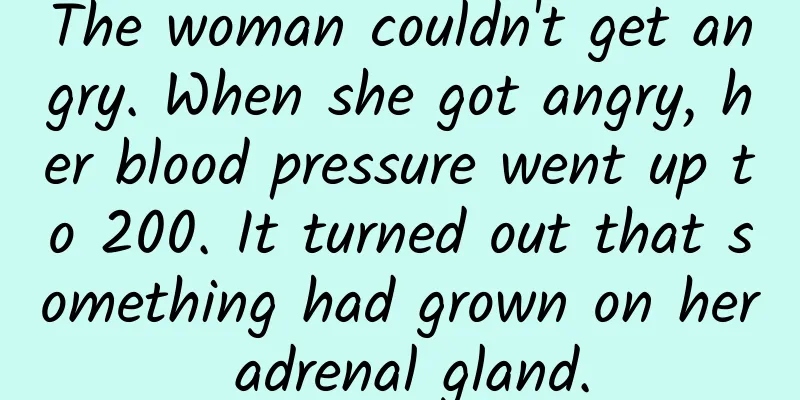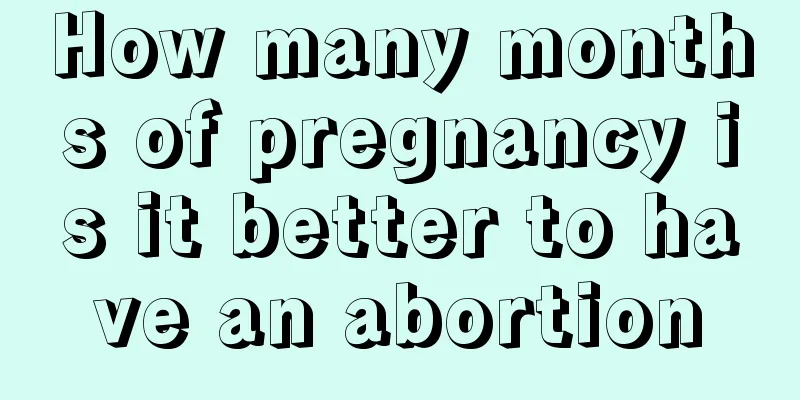Delayed menstruation during menopause

|
For women, menstruation will actually end. Because women's menstruation is mainly caused by the need for the ovaries to ovulate. Once the ovaries fail, menstruation will stop. Once a woman enters menopause, her menstruation has actually ended, not been delayed. Women experience menopausal symptoms because of the cessation of menstruation, which leads to endocrine changes. reason First, physiological changes include the decline of ovarian function, the gradual decrease and loss of periodicity of estrogen secretion and ovulation, until ovulation stops; the pituitary gland secretes excessive follicle-stimulating hormone and luteinizing hormone. Changes in the structure and function of estrogen target organs such as the vagina, uterus, breasts, urethra, etc. As a result, a series of physiological phenomena occur during the perimenopausal period, including irregular menstruation, hot flashes, sweating, palpitations, frequent urination, urinary incontinence, vaginal dryness, decreased libido, poor sleep, osteoporosis and weight gain. Along with physiological changes, women may also experience some psychological discomfort reactions such as emotional instability, memory loss, suspicion, anxiety and depression. Second, in terms of social relations, perimenopausal women face some social problems such as career difficulties, divorce, parents' illness or death, children growing up and leaving their side, etc. All of these bring them mental pressure and to a certain extent interfere with the life, work and relationship with others of perimenopausal women. They often feel that they are getting old, do not like to participate in public activities, and are easily angry with their family members. If these situations do not receive understanding from society and family members, they can easily lead to family conflicts and even endanger women's health. The precursors or early symptoms of menopause in women are relatively obvious, and menopause can be predicted through the following indicators. Prediction through family heredity: Since the age of entering menopause is related to genetic factors, the age at which a grandmother, mother, or older sister enters menopause can be used as a predictor of the age at which a granddaughter, daughter, or younger sister enters menopause. However, this indicator is not absolute and can be easily affected by acquired living conditions, environment, climate, social factors, drugs, diseases and other factors, which may advance or delay menopause. Predicting menopause age from menarche age: Most people have observed and confirmed that the age of menarche is negatively correlated with the age of menopause, that is, the earlier the age of menarche, the later the age of menopause (menopause); conversely, the later the age of menarche, the earlier the age of menopause. |
<<: Menstrual changes during menopause
>>: Women's menopause symptoms
Recommend
Why does a pregnant woman bleed when she poops?
Most of the symptoms of bleeding when defecating ...
How many horizontal and vertical rows are there in the periodic table? Where is sulfur located in the periodic table?
The periodic table of chemical elements is widely...
What are the benefits of women stepping on soybeans?
When mentioning soybeans, people usually think of...
Can a woman who has had a vasectomy still have the surgery done?
In the past, women had to undergo sterilization a...
How to eat longan and longan? How to make longan pulp
You may not be able to tell the difference betwee...
What causes headaches during pregnancy?
Headaches in mid-pregnancy are a common phenomeno...
What does right breast nodule mean?
Among gynecological diseases, right breast lumps ...
How many days after menstruation is over can you have sex
During their relationship, both men and women mus...
How to lose weight for a girl weighing 120 catties
Every girl wants to have a perfect body. For many...
Pregnancy weight gain chart
Pregnant women must pay attention to dietary cond...
What are the symptoms of dysmenorrhea
The problem of dysmenorrhea is one of the most co...
What are the basic characteristics of psychology? What does applied psychology study?
In recent issues, we have shared with you some ba...
Changes of the uterus during pregnancy from 1 to 9 months
We all know that when a woman is not pregnant, he...
What are the causes of back pain in women
Back pain in women is a very common physical cond...









